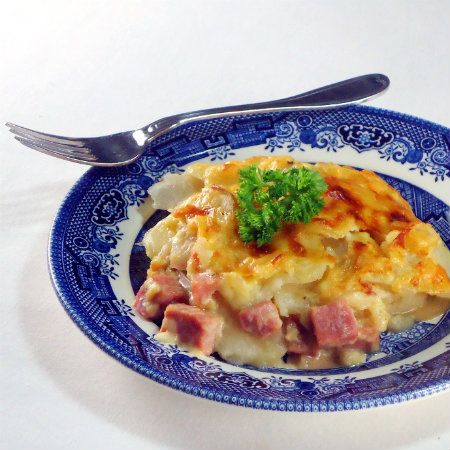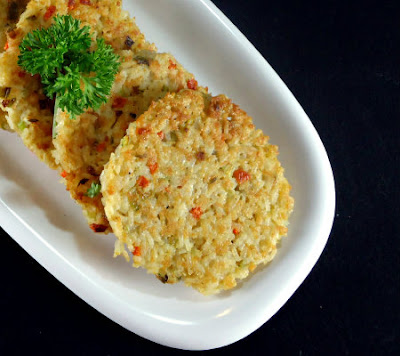
From the kitchen of One Perfect Bite...While the face of hunger has changed with time, programs to assist those in need have been in place for years. I thought you might like to quick-step through that history. If you'd like to see a more detailed timeline, one can be found here. The first Food Stamp Program began in 1939. The original program allowed people on relief to buy orange stamps equal in value to amount of their normal food costs. For every orange stamp that was purchased, a blue stamp, worth an additional fifty cents, was also issued. The orange stamps could be used to purchase any type of food, while blue stamps could only be used purchase government surplus food items. The program ended in 1943 when employment improved and unmarketable food surpluses no longer existed.
The program remained inactive until President Kennedy signed an Executive Order that called for a program to expand food distribution. In 1961, the creation of a food stamp pilot program was announced. The new program still required the purchase of food stamps, but the concept of special stamps for the purchase of surplus stores was eliminated. In 1964, President Johnson requested that Congress pass legislation that would make the program permanent. The bill, whose purpose was to strengthen the agricultural economy and improve the nutrition of low-income families, became law in 1964.
Huge changes have been made to the program in intervening years. Food stamps have been replaced by an Electronic Benefit Transfer (EBT) system that moves authorized funds from an individual's Federal account to that of a grocer in payment for food. Once a recipient has an approved account, a plastic card, similar to a bank debit card, is issued and benefit deposits are made to that account each month. In October of 2008, the name of the Federal Food Stamp Program was changed to SNAP (Supplemental Nutrition Assistance Program) to reflect a focus on nutrition as well as increased benefit amounts.
I spent some time tonight pondering how I'll spend the 65 cents I have left in my allotment for the week. We've cut it very close, but I have a certainty that we'll successfully complete the challenge. It hasn't been easy, because challenge participants are required to purchase all food from their allotment. In the real world, SNAP benefits are meant to supplement other funds. I suspect that most of us can do anything we set our minds to for a week, but the day in and day out of this must really wear on those for whom it is not an exercise. We ate well today. Our food was sufficient for the day. Here are the recipes and the menu I used for the fifth day of the SNAP challenge.
Menu for SNAP Challenge Day Five
Breakfast
Orange Juice
Coffee
Oatmeal
Corn Muffins
Lunch
Carrot and Celery Sticks
* Savory Vegetable and Rice Cakes with Boiled Dressing
Dinner
Small Chopped Salad with Oil and Vinegar Dressing
* Scalloped Ham and Potatoes with Cheese
Recipes for Day Five
Scalloped Ham and Potatoes with Cheese
Ingredients:
1/2 cup chopped onion (1 large)
2 cloves garlic, minced
2 tablespoons butter
2 tablespoons all-purpose flour
1/2 teaspoon salt
1/4 teaspoon black pepper
1-1/4 cups milk
4 cups (about 1 pound) thinly sliced potatoes
12 ounces cubed or shredded ham
1 cup shredded cheese (I use Monterey Jack)
Directions:
1) To make sauce: Melt butter in a medium saucepan over medium heat. Add onion and garlic and cook until tender. Stir in flour, salt, and pepper. Add milk all at once. Cook and stir over medium heat until thickened and bubbly. Add cheese and stir until melted. Set aside.
2) Place half of sliced potatoes in a greased 1-1/2 quart rectangular dish. Top with ham and half of sauce. Top with remaining half of potatoes and sauce.
3) Bake, covered, in a preheated 350 degree F oven for 45 minutes. Uncover and bake for 40 to 50 minutes more or until potatoes are tender. Let stand, uncovered, for 10 minutes before serving. Yield: 4 to 5 servings.
Savory Vegetable and Rice Cakes
Ingredients:
3 scallions, finely chopped
1 carrot, finely chopped
1 celery rib, finely chopped
2 garlic cloves, finely chopped
1 teaspoon finely chopped fresh thyme
3/4 teaspoon salt
1/4 teaspoon black pepper
5 tablespoons olive oil
2 cups unsalted cooked rice at room temperature
2 large eggs, lightly beaten
1 cup fresh bread crumbs
Boiled dressing or thin mayonnaise
Directions:
1) Cook scallions, carrot, celery, garlic, thyme, salt, and pepper in 2 tablespoons oil in a 12-inch heavy nonstick skillet over moderate heat, stirring, until carrot is softened, about 8 minutes.
2) Stir together rice, eggs, bread crumbs, and vegetable mixture in a bowl. Form into 8 (2 1/2- by 1/2-inch) patties, pressing mixture so cakes will hold together (mixture will be loose). Transfer to wax paper as formed. Cook 4 rice cakes in 2 tablespoons oil in skillet over moderately high heat, gently turning over once, until browned, about 7 minutes total. Transfer to a plate and keep warm, loosely covered with foil. Cook remaining 4 cakes in remaining tablespoon oil. Serve with boiled dressing or a thin room temperature mayonnaise. Yield: 8 rice cakes.
One Year Ago Today: Yam Yeast Bread
Two Years Ago Today: Tortellini en Brodo
Three Years Ago Today: Pizzelles






18 comments :
I have never even heard of rice cakes before, I'll have to try those!! You have 65¢ for the next 2 days? Yikes!!
sixty five cents for the next 2 days? Yikes, keep up the good work!!
When I used to live in a neighborhood where there were quite a few food stamp recipients, I was always dismayed at all the processed foods in their cart. Processed foods are so "relatively" expensive for their nutrient value.
I think it's amazing you're doing this. When I bought dog food yesterday I was reminded that my St. Bernard couldn't live on food stamps. Just my herbs and spices, wine and condiments would eat up the budget. If we all went to h*ll in a handbasket, I would be eating terribly differently. I'd like to try the challenge one day... it would be eyeopening -- no whole foods!!
Mary, congratulations on this really meaningful post!
Makes me reflect on how fortunate we are and that we should never forget those in need.
I don’t know how you manage , but you make even these simple dishes look so pretty :)
Coleen, not to worry. The $.65 is the amount I had left after shopping for the week. Bob and I are debating what we'll spend it on. We're like kids in a candy store. Have a great day. Blessings...Mary
This has been a very interesting series to read. Kudos to you and Bob for taking this challenge and exploring the challenges. It raises so many questions from nutrition to the amount of money we spend on food and what that means in terms of value. But clearly one takeaway is how important intense planning is to maximize every dollar. That, unfortunately is a skill that is rarely taught these days, and shouldn't be taken for granted.
What stands out for me is the amount of time it takes to plan when one has to stick to such a small and rigid budget. I guess there are many luxuries the come with money -among them, time and choice.
Not having the luxuries of time and choice and how wearing it is to have to plan and measure out every little thing are part of being poor. I wish more people would think of that when they are judging what SNAP recipients put in their shopping carts.
My mother was a recipient of the first food stamps program when her father died while she was still a child. That is probably why she has always been very frugal.
Thank you for the recipes I may make these tonight.
I never tried rice cakes ( I did with millet and quinoa tough) and these looks good!
An excellent series Mary ... I find the level of planning and repetition of ingredients striking ... I also lament how difficult it is to build up a pantry of items that can allow for more variety within the weekly budget ... I would be whining all the time were I stuck on such a rigid allotment.
Thank you for such an eye-opening look at life on SNAP ...
I think it is great that you took on this challenge. In my area SNAP is called FoodShare or Quest. My job outside of my blog is working with people over the age of 60 who recieve this (among other) benefits. It suprises many people that FoodShare (or SNAP) allow some of the "higher" (I use that term loosly because the income is not high at all) income people to be on this program. It also suprises many people that the amount you get is determined on income, medical costs (for those over 60) and shelter expenses. The max for a single is $200 a month, but most people do not recieve the max benefit. As one of you posters said it would be very nice if people stopped judging what a person has in their shopping cart...I can't understand being "dismayed" by what a person puts in their cart when we consider the small weight we have put towards healthy eating up until very recently.
Kudos to you for being open to expore this program and all it does.
Super job!
Those rice cakes sound really good,
I'll have to write this recipe down.
M :)
Yes, I am very excited about this potato recipe, I have been looking for one like it for years. Every recipe I see calls for cooking it about half this time, and they are never done. I have printed it and can't wait to try it!!
We had the ham and potato dish last night for dinner. Used some sad frozen hashbrowns and a couple wrinkly potatoes. Three kids gave it a double thumbs up!
January is our 'pantry' month--eat what we have in the pantry and freezer. My goal is to spend less than half of usual grocery budget. Feb 1st finds me cleaning and organizing the kitchen and defrosting the freezer. A month of 'making due' is good for my creative juices and pocketbook.
Great, but what if one has food allergies or other medical conditions which requiure medically necessary diets, which SNAP - - BY LAW - - allows no calculations for despite all the knowledge about the connections between nutrition and health?
Post a Comment